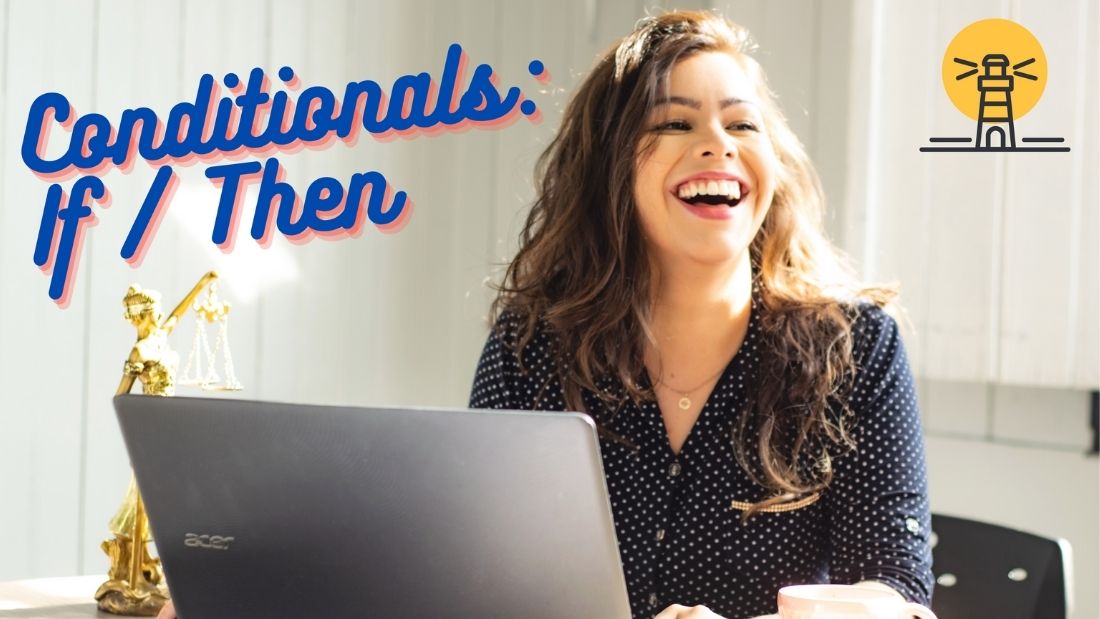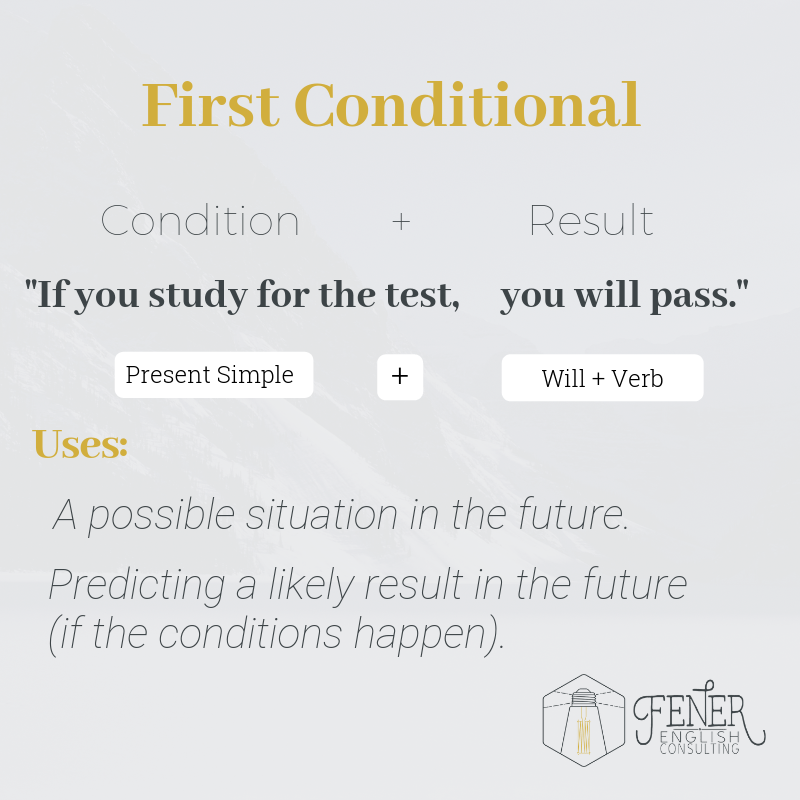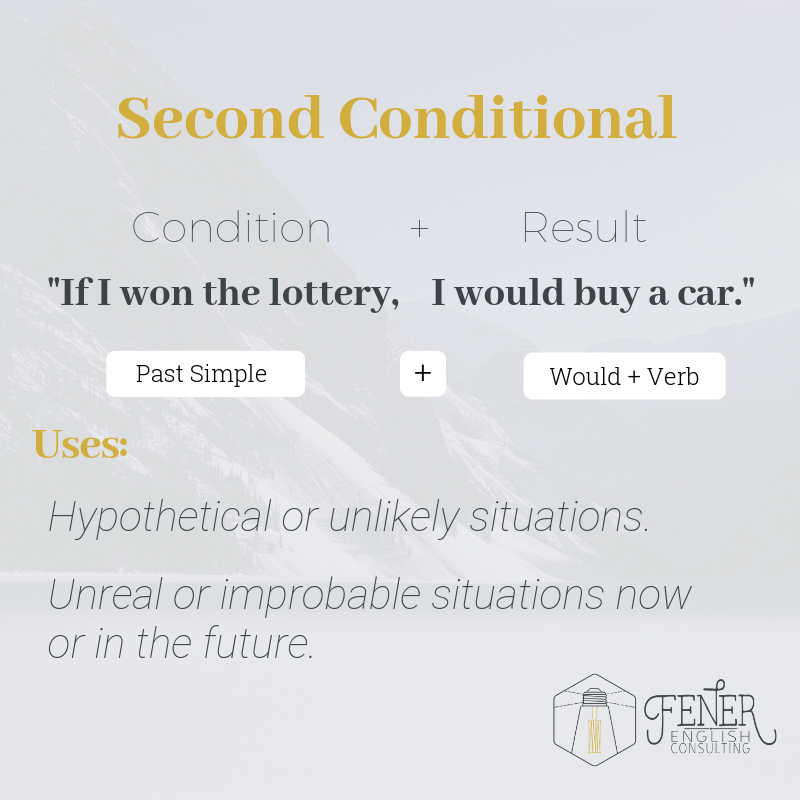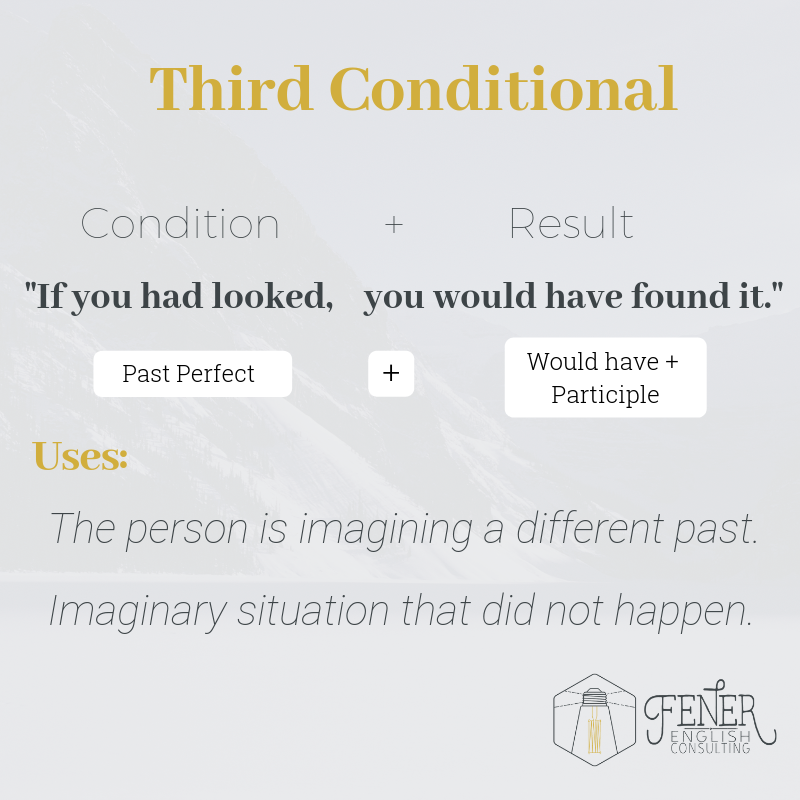
Conditionals: If / Then
In our lives we daily find ourselves in situations where one action or circumstance depends on another.
“If you finish your homework, you can go to the movies.”
“If you become President someday, I’ll be your Vice President.”
“If I had been a better track runner, I could have made it to the Olympics.”
Conditional tenses are used to talk about what could happen, what might have happened, and what we wish would happen. For conditionals, most sentences we use in English contain the word if.
Let’s look at the four levels of conditional phrases: zero conditional, first conditional, second conditional, and third conditional.
Zero Conditional: General Truths (Zero conditional statements will for sure come true if the condition is met.)

First Conditional: A possible condition and its probable result (First conditional statements are likely to come true.)

Second conditional: A hypothetical condition and its probable result (Second conditional statements can come true because they involve conditions that could happen now or in the future, but they are unlikely to come true.)

Third conditional: An imaginary past condition and its probable imaginary result in the past (Third conditionals are the only ones that cannot come true because we already know the result.)

To see how well you understand, write out an example from your own life for each level of conditionals.

